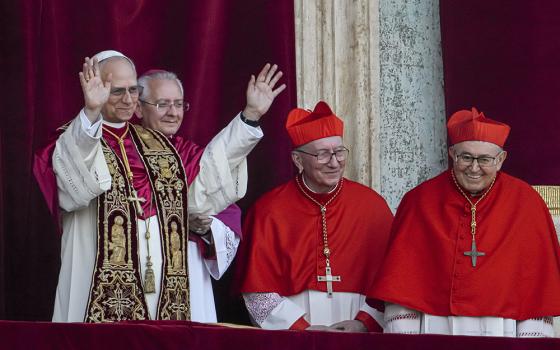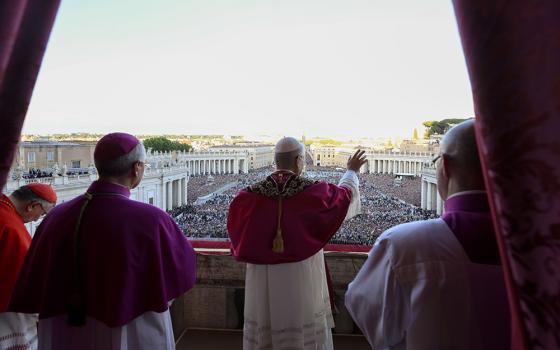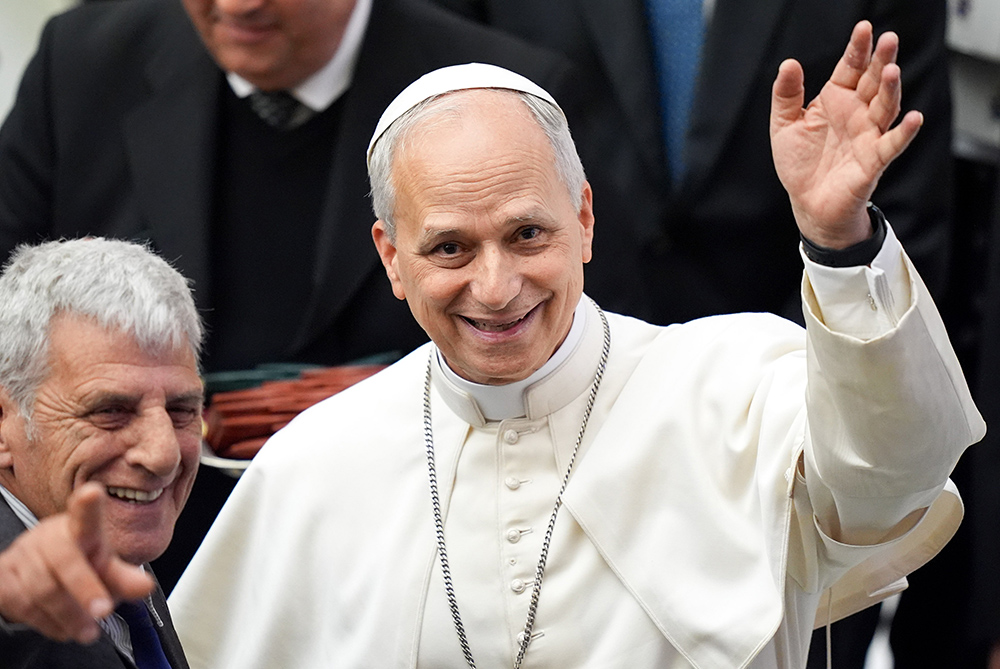
Pope Leo XIV greets photographers as he welcomes members of the media who covered his election, during a meeting in the Paul VI Audience Hall at the Vatican May 12, 2025. (CNS/Lola Gomez)
The curious background of Pope Leo XIV, the North American formerly known as Cardinal Robert Prevost, is already making waves, with some calling the new pontiff the first Black pope and others still looking for answers.
New Orleans genealogist Jari Honora dropped the bombshell on May 8 after white smoke rose in St. Peter's Square, calling attention to census data that indicates the new Bishop of Rome descends maternally from African-descent Louisiana Creoles. The pope himself was raised in Chicago, where his mother's family migrated in the early 20th century.
An inauguration Mass will officially enthrone the first American pope on May 18, bringing thousands to the Vatican to fête the new face of the Catholic Church.
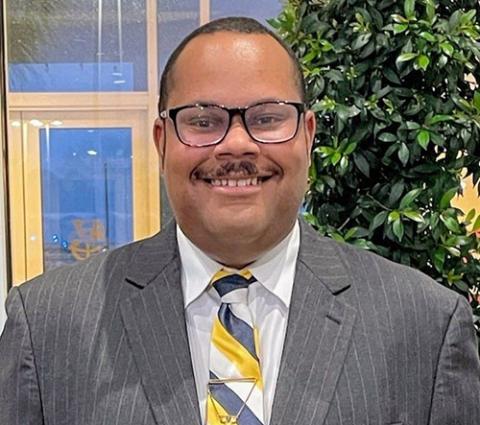
Jari Honora, seen in an undated photo, is a certified genealogist and a family historian for the Historic New Orleans Collection museum. (OSV News/courtesy Jari Honora)
"I invite you to reflect on the marvels the Lord has done, the blessings that the Lord continues to pour out on all of us through the Ministry of Peter," Leo told the College of Cardinals in English during a homily Friday morning at a livestreamed Mass in the Sistine Chapel.
"You have called me to carry that cross, and to carry out that mission, and I know I can rely on each and every one of you to walk with me, as we continue as a church."
In his most recent post, as prefect of the Vatican's Dicastery for Bishops, Prevost advised Pope Francis on episcopal appointments (and demotions) around the world, including the 2023 removal of the far-right Texas bishop Joseph Strickland — a noted anti-Francis voice — from the Diocese of Tyler, Texas. Earlier that year, Tennessee bishop Richard Stika of Knoxville resigned under duress after successive scandals, an exit also influenced by Prevost.
The pope-to-be was also an outspoken voice on a variety of social issues, including racism, the death penalty, climate change and poverty. He chose his papal name, Leo XIV, in honor of Pope Leo XIII, who reigned in the late 19th century, pioneered in Catholic social teaching, and condemned slavery in two papal documents.
Advertisement
The social justice (and unexpected ethnic) connections have already begun to thrill Americans of various stripes, including many Louisiana Creoles who see Pope Leo XIV as one of their own.
Fr. Claude Williams, an African American from New Orleans, serves in Rome as rector of the Collegio San Norberto, a house of the Norbertine Order — part of the same tradition as the Augustinians, of which the pope is a member.
Williams' ancestors also worshiped at the same 19th century Crescent City church as Leo's, in the historic Seventh Ward neighborhood long associated with Black Creoles.
"My great-grandmother was baptized at Our Lady of the Sacred Heart in 1905, where his grandparents were married in 1887," Williams said, adding that he is grateful that the Augustinian charism will be present in the church's highest office.
"The essence of the Augustinian Rule is being one heart and one mind in God," he said. "Our charism as Norbertines is communio, a shared hallmark of all Augustinian communities. The gift of intimate connection with God and in committed service to God's holy people."
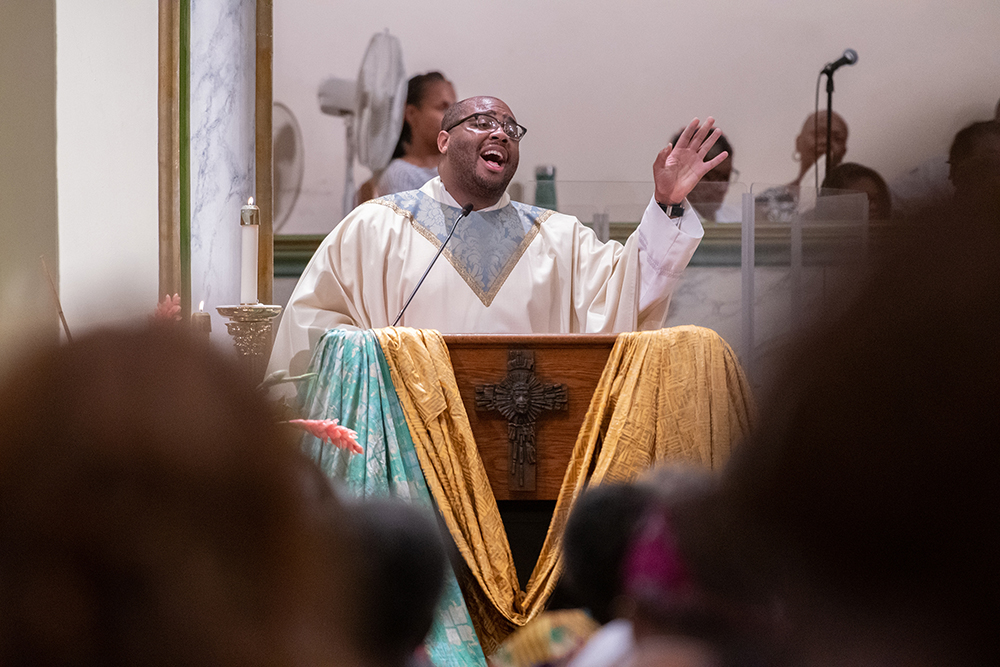
Fr. Kareem Smith of the Archdiocese of New York delivers the homily in Baltimore's historic St. Francis Xavier Church July 22, 2019, for a Mass honoring jubilarians during a joint conference of black priests, women religious, deacons and seminarians. (CNS/Catholic Review/Kevin J. Parks)
Leo's Louisiana roots — which are reportedly being investigated by the Archdiocese of New Orleans — are just part of the Black Catholic intersection quickly taking shape in the media and elsewhere.
Williams noted to Black Catholic Messenger that Leo appears to have been born at the same Chicago hospital where Venerable Fr. Augustus Tolton, who rose from slavery to become the nation's first openly Black Catholic priest, died in 1897.
Fr. Kareem Smith of the Archdiocese of New York, who serves as president of the National Black Catholic Clergy Caucus, picked up on a similar theme and also called attention to the other African American candidates for sainthood.
"We pray that this new pontificate brings greater recognition to the legacy of Black Catholics in America and renewed momentum toward the canonization of the 'Holy Seven,' including Tolton," he said.
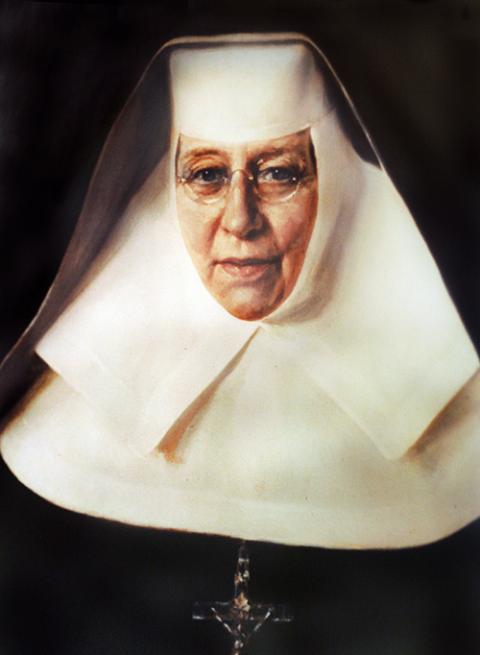
This likeness of St. Katharine Drexel is seen at the Katharine Drexel Shrine in Bensalem, Pa. (CNS/The Crosiers)
"That [Pope Leo XIV's] roots reach into the rich soil of Creole New Orleans is more than genealogical; it is providential. It affirms the often-overlooked yet undeniable presence of Black Catholics in the very fabric of our church's history — a history that has too often been questioned or ignored."
Sr. Stephanie Henry, a Black Catholic who serves as congregational leader for the Sisters of the Blessed Sacrament and who taught in New Orleans for years, also expressed joy at the election of Leo XIV. Her order's foundress, St. Katharine Drexel, the famed heiress-turned-nun, was originally encouraged to enter religious life by Pope Leo XIII.
"It seems momentous that this election took place on May 8, the former liturgical feast of Our Lady of the Blessed Sacrament," she said in a statement shared with Black Catholic Messenger.
"In times such as these, when many in the United States are wondering, 'What direction are we headed as a nation? Are we listening to God?' God has spoken and he is calling us in America to his heart through this new election," she added, ending with a prayer for the new North American pontiff.
"May God bless Pope Leo XIV with all the graces he needs to lead the church and to shepherd the world in the name of Jesus Christ."
This story was originally published at Black Catholic Messenger.



